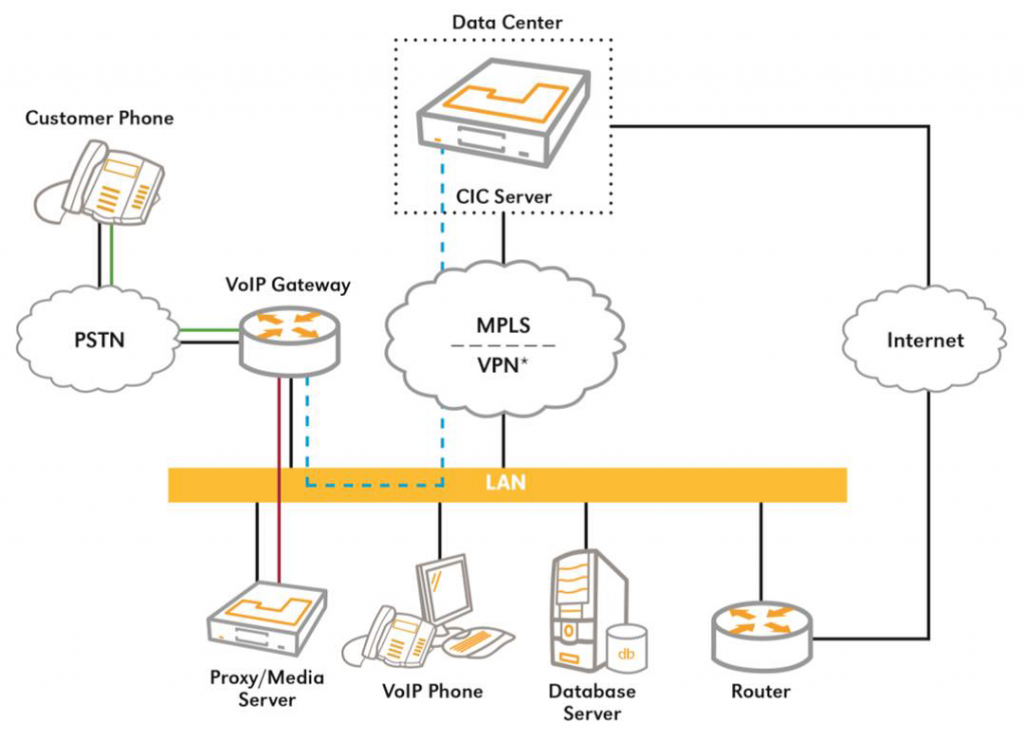 The Cloud has been exploding in popularity. Organizations of all types love the ability to treat software much as they do electricity — a service that they plug into and pay for monthly. The advantages are obvious and include:
The Cloud has been exploding in popularity. Organizations of all types love the ability to treat software much as they do electricity — a service that they plug into and pay for monthly. The advantages are obvious and include:
- Increased flexibility
- Faster deployment time
- Minimal upfront capital expense
- Reduced IT requirements
Hosting & Cloud Communications
With the advent of voice over IP (VoIP), this same Cloud delivery model has been applied to various communication services including contact center automation and unified communications.
Unlike other Cloud services, communications services have special considerations. Communications services are often considered more vital because they involve personal contact with customers. An inability to take calls from or effectively communicate with customers can threaten the very existence of a business. The disadvantages of Cloud Communications include:
- Extreme business disruption in the event of a service outage
- Poor call quality gives the impression of a shoddy or off-shore operation
- Loss of control over valuable data
- Lack of security for both voice and data
Even the public power grid has disadvantages with its variable quality, intermittent spikes, and occasional blackouts, some blackouts being severe enough to last for hours or days. Organizations have learned to mitigate these problems with surge protectors, uninterruptible power supplies, and emergency generators. Clearly what’s needed is a similar hybrid model for Cloud Communications — one that combines the best of Cloud services and on-premises infrastructure.
Hybrid Cloud Communications
The Interactive Intelligence Cloud Communications solution, Interactive Intelligence® Communications as a Service℠ (CaaS), offers a hybrid deployment option that provides the advantages of Cloud Communications while providing the security, reliability, and control of an in-house communications system. The approach is simple.
- Keep your current telecommunications vendor
- Attach your phone lines to a VoIP gateway that sits on your network
- Connect a local call management device to your network
- Install an approved connection between your network and an Interactive Intelligence data center
- Deploy VoIP phones
The configuration is illustrated in the diagram shown here.
Notice how simple this configuration is. The VoIP gateway is a type of router that connects traditional phone lines (T-1, E-1, ISDN PRI, analog) to your network. The gateway converts phone calls to voice over IP using the international SIP (Session Initiation Protocol) standard. Similarly, the Media Server — in this case the Interaction Media Server™, with the Interaction SIP Proxy™ installed — is a simple device that provides local call management, as we’ll describe in a moment. (We’ll also describe the “Proxy/Media Server” combination in more detail in a later section.) To make things even simpler to deploy and manage, Interaction Edge™ combines the gateway, Media Server and SIP Proxy into a single appliance.
Contact us today to learn more about our hosting and private cloud services.

